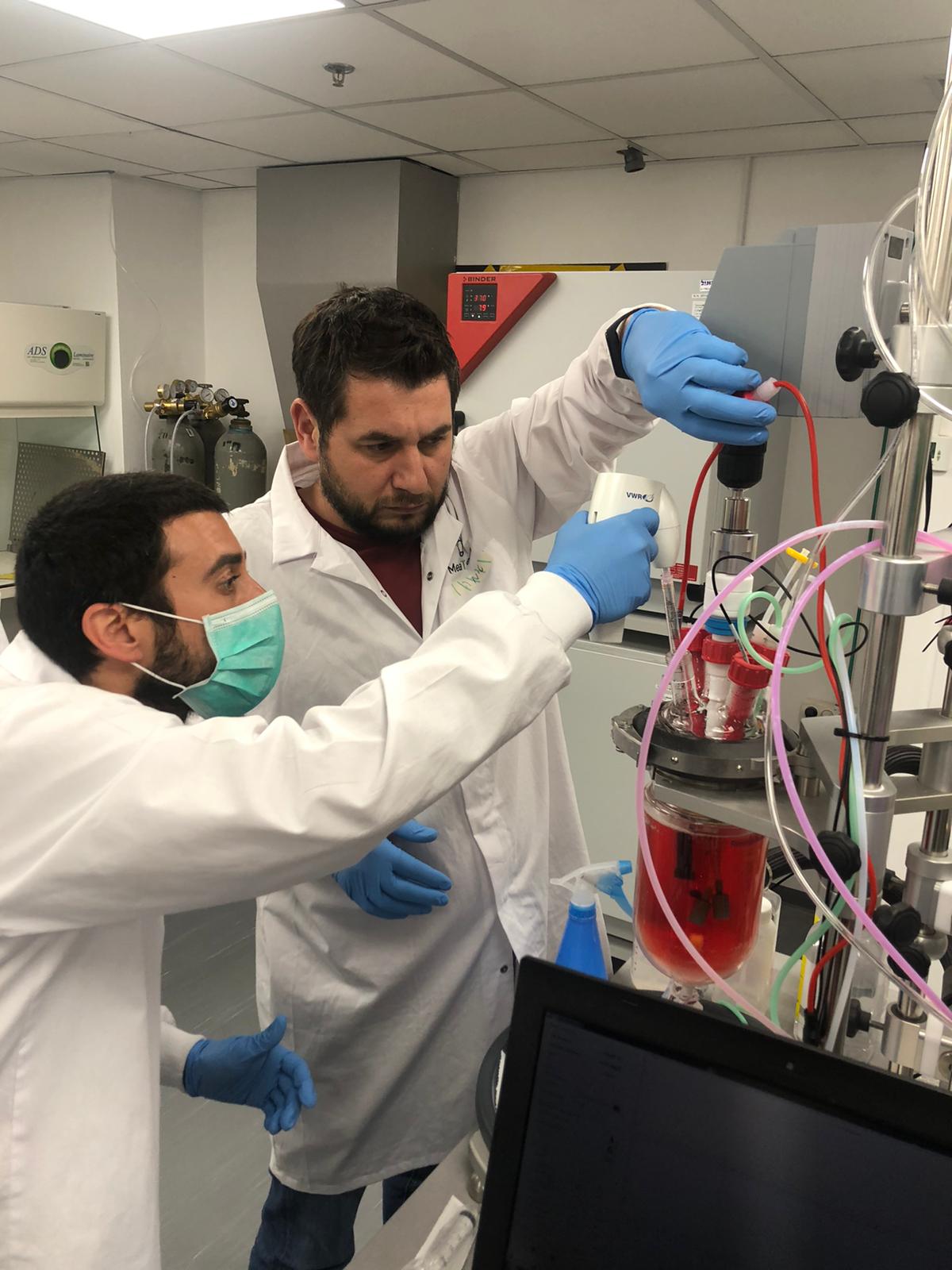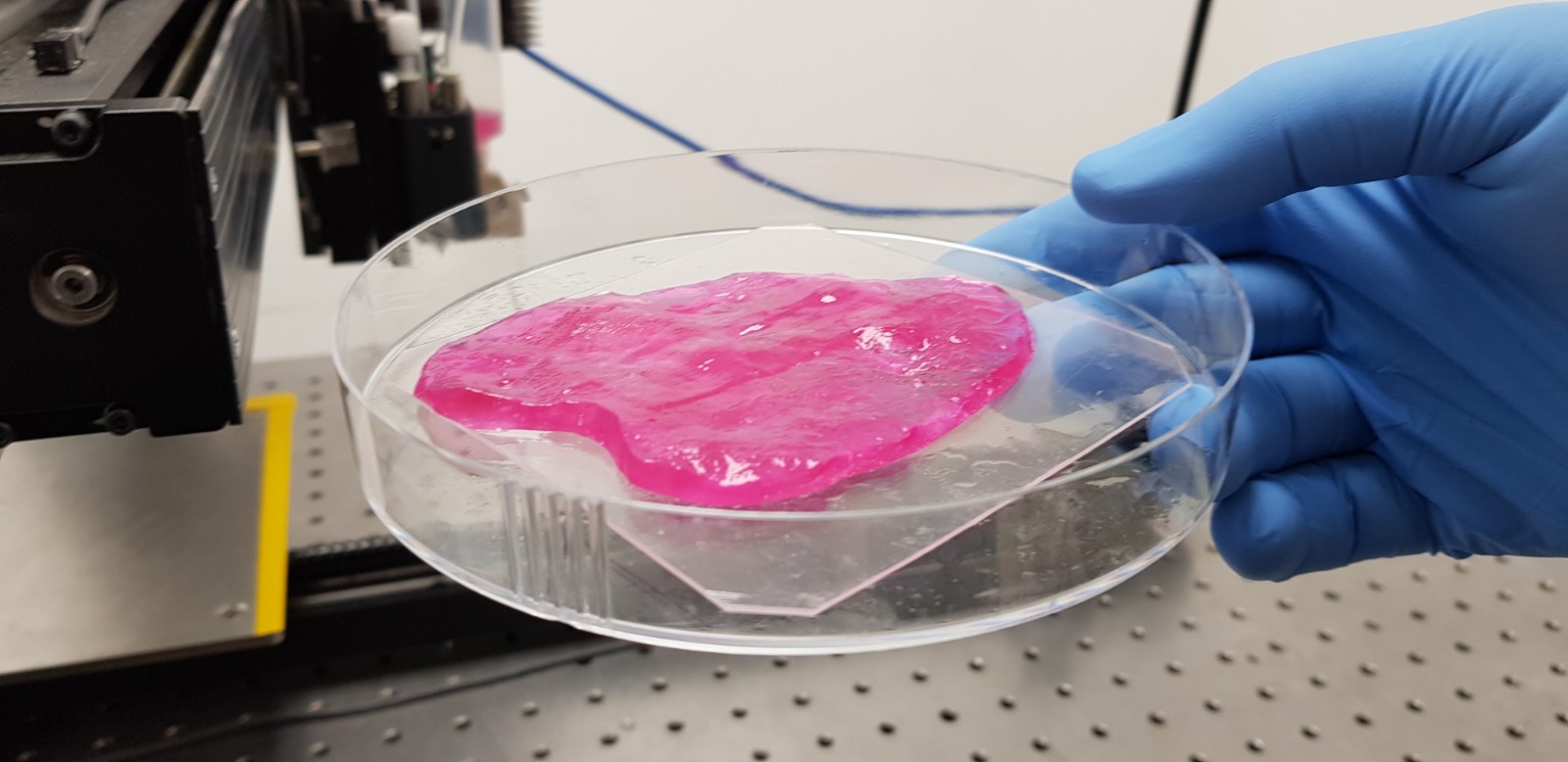Israeli food tech company Meat-Tech 3D has closed a $7 million funding round for its 3D bioprinted cultured meat production technologies.
Led by investment firm Psagot Provident and Pension Funds, the funding round announcement comes shortly after Meat-Tech 3D revealed it had embarked upon filing for an Initial Public Offering (IPO) in the U.S. The firm also recently invested €1 million in cultured fat product developer Peace of Meat, which it plans to fully acquire for a total of $17.5 million.
“We thank our investors for their confidence in the company’s activities and vision,” said Meat-Tech CEO Sharon Fima. “The investment round enables us to progress the recently announced Peace of Meat acquisition, strengthening an important part of our R&D and opening up new markets such as that for hybrid products.”

Developments in 3D printed meat
3D printing is becoming more prevalent within the food industry as bioprinting technologies and materials continue to advance. The concept of 3D printing cultured meat has been around for some time, with several firms continuing to innovate within this space to address sustainability issues within the food sector, and concerns around animal welfare.
In 2018, Spanish bioengineering start-up NovaMeat developed a synthetic, 3D printed vegetarian steak mimicking the texture of beef or chicken. The steak was produced in an effort to decrease the negative impact of animal farming and offer an alternative to currently available meat-free food products.
Elsewhere, fellow Israeli food 3D printing start-up Redefine Meat raised $6 million in seed funding to forge ahead with the development of its alternative-meat 3D printer. Founded in 2018, the firm is seeking to address the sustainability of the meat industry through producing plant-based meat substitutions using 3D printing.
Earlier this year, Redefine Meat unveiled its first industrially 3D printed vegan steak product, named Alt-Steak. The steak is to be market-tested at select high-end restaurants before becoming available to the market at some point in 2021.
Interest has also been sparked not just in cultured meat production, but in fish products too. A Danish-based band of students recently innovated an extrusion-based 3D printing process for fabricating salmon. Now trading under the name Legendary Vish, the startup is looking to commercialize its product, and hopes to provide a healthier and tastier alternative to existing vegan-friendly fish substitutes.

Meat-Tech 3D’s ambitions
Meat-Tech’s mission is to develop commercial and sustainable technologies to produce alternative meat proteins without the need for animal slaughter. The firm is working on a novel proprietary bioprinter to deposit layers of cells, scaffolding, and cell nutrients to form 3D printed cultured meat.
During the process, a sample of animal umbilical cord is taken and a cell line developed for continued cell reproduction. The cells are then differentiated into inks with different cell types such as fat and muscle before being 3D bioprinted to create the foundations for a cut of meat. These structures are then grown in incubators before being frozen and packaged for shipping.
“The investment in Meat-Tech aligns with our investment strategy focusing on high impact companies,” said Gat Megiddo, VP of Investments at Psagot. “Companies which we believe have great economic potential, as well as a potentially huge contribution to the environment. Meat-Tech has made impressive progress with its development pipeline, in addition to the strategic acquisition that the company is working to complete.
“The acquisition promotes a foothold in the global protein alternatives market which is showing great momentum.”
Already trading on the Tel Aviv stock exchange, Meat-Tech has now started the process of filing for an IPO in the U.S. to trade on the Nasdaq Stock Market. The proposed IPO is expected to commence as soon as market conditions permit, following the completion of the U.S. Securities and Exchange Commission’s (SEC) review process.

Expanding scalability with Peace of Meat acquisition
Peace of Meat develops proprietary stem cell-based technology to produce animal fats from the likes of cattle and chicken, without causing animal harm. Through the proposed acquisition, Meat-Tech will seek to leverage Peace of Meat’s technologies to expand its cell-based offerings and accelerate its cultured fat development, in turn shortening the time to market for the products.
At the time of the announcement, David Brandes, managing director of Peace of Meat, commented on the plans: “Peace of Meat shares the strategic vision of Meat-Tech 3D and is excited to join forces. We are convinced that the strong scientific and commercial synergies between both parties paired with our approach of creating hybrid products based on savory cultured fats is the perfect setting to bring cultured meat to market in an increasingly competitive space.”
Meat-Tech aims to lease its cultured meat 3D printing technologies to major food producers around the globe, who will utilize it to create advanced cultivated meat and related products. The firm intends to achieve this through a combination of internal developments and acquisitions, such as that of Peace of Meat.
Subscribe to the 3D Printing Industry newsletter for the latest news in additive manufacturing. You can also stay connected by following us on Twitter and liking us on Facebook.
Be sure to subscribe to the Another Dimension podcast on your chosen podcast player to make sure you never miss an episode.
Looking for a career in additive manufacturing? Visit 3D Printing Jobs for a selection of roles in the industry.
Featured image shows animal cells are differentiated into inks with different cell types such as fat and muscle before being 3D bioprinted to create the foundations for a cut of meat. Image via Meat-Tech 3D.



